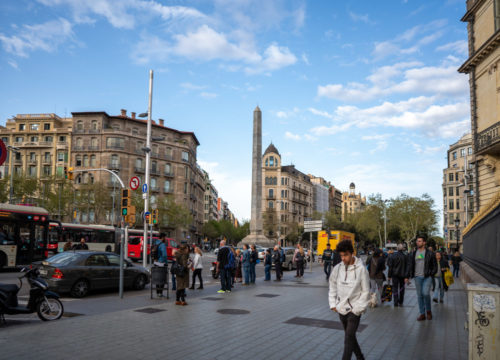
There are no straight lines or sharp corners in nature. Therefore, buildings must have no straight lines or sharp corners. ~ Antoni Gaudi
I always wanted to visit Barcelona mainly for the works of Antoni Gaudi – the figurehead of Catalan Modernism. His style is distinctive, to say the least! And expressive. I and my family took Barcelona, Milan and Istanbul trip in the month of April 2018. This multipart travel blog takes you through that journey just like how I covered my Singapore, Cambodia and Dubai trip earlier. We booked our international flight on Qatar Airways.
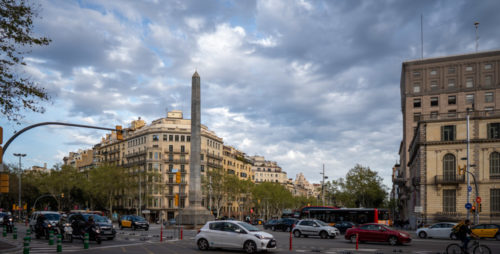
Early morning, we left Chhatrapathi Shivaji international airport, Mumbai at 4:10 AM and travelled 3 hours 40 minutes but still reached Doha’s Hamad airport at 5:20 AM local time. You might be thinking how we achieved such a miracle. Since Earth was rotating and we went to different time zone (Doha is UTC +3 against India which is UTC +5:30).
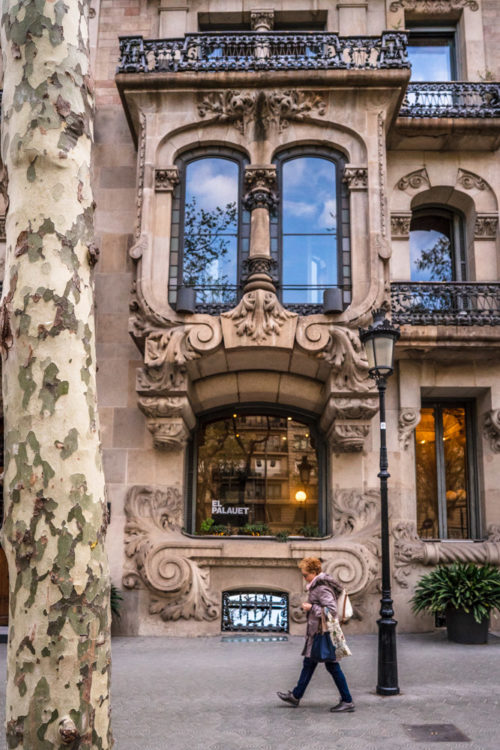
It was a very comfortable Boeing 777 aircraft and the journey was very nice. Qatar Airways has cut down on the in-flight service considerably. But still it is remarkable for a small country which has faced complete blockade from June 2017, by Gulf countries who closed their airspaces to all Qatari registered aircraft, essentially eliminating Qatar Airways’ two largest markets – Saudi Arabia and UAE – from both Qatar’s passenger and cargo network.
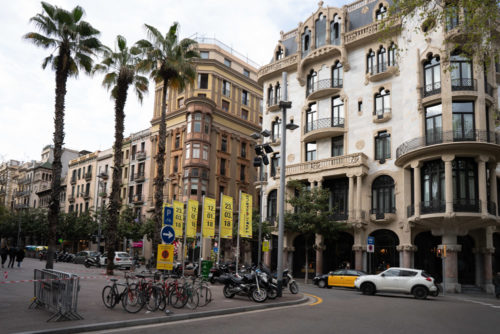
After 3 hour layover at Doha, we embarked next leg at 8:10 AM from Hamad International Airport to Barcelona–El Prat Airport. This journey took 7 hours and we reached Barcelona at 2:15 PM Barcelona time. After finishing the immigration formalities we took an airport taxi to our hostel at Avinguda Diagonal.
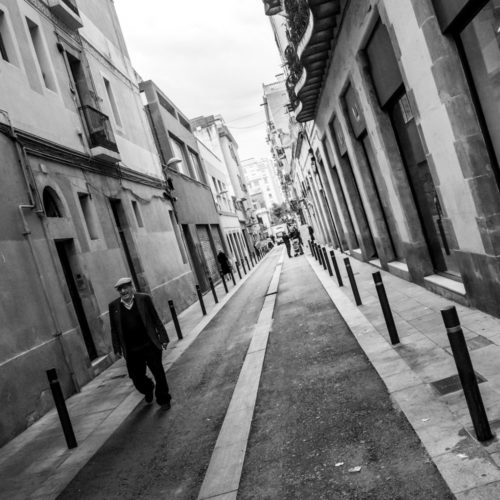
A taxi from Barcelona airport to central Barcelona takes about 30 minutes and costs around €30. All Barcelona taxis are metered, the exact price depends on a combination of distance and the time taken for the journey. As you leave the baggage reclaim area, you will come to a metal barrier where people wait to meet arrivals. In the area behind the barrier, you will see a large “TAXI” sign and a door leading to the ramp down to the taxi rank. There is normally a uniformed attendant at the bottom of the ramp who will tell you which of the waiting taxis to take.
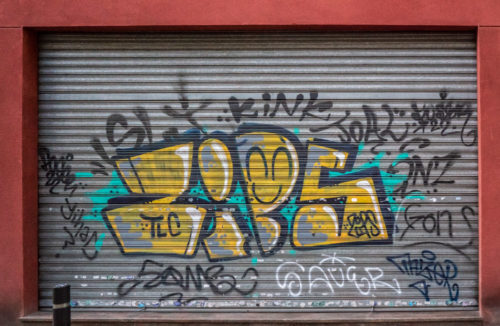
Avinguda Diagonal is the name of one of Barcelona’s broadest and most important avenues. It cuts the city in two, diagonally with respect to the grid pattern of the surrounding streets, hence the name.
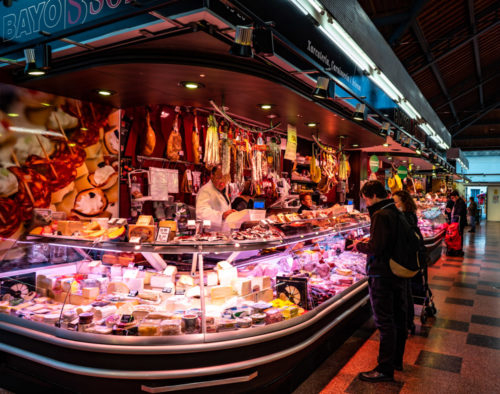
Avinguda Diagonal remains to this day a much-transited avenue and many companies and hotels use it as a privileged location, as can be seen in its architecture.
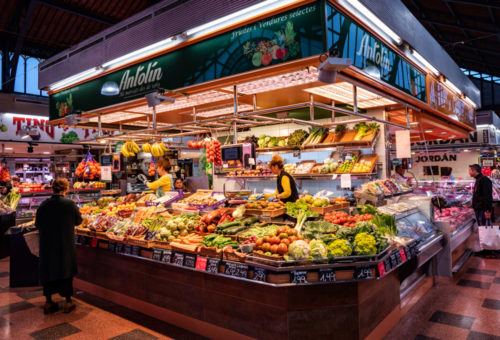
We had booked Rodamon Hostel at Corsega, just a walking distance from Diagonal Metro station. The staff of the hostel were super friendly and since the location was very close where we wanted to visit, it was an ideal place to stay. We got a dormitory with 6 beds. beds were super comfortable. Our two other companions staying in our room were from Korea. After freshening up we set out to explore the Gràcia side of Barcelona on foot.
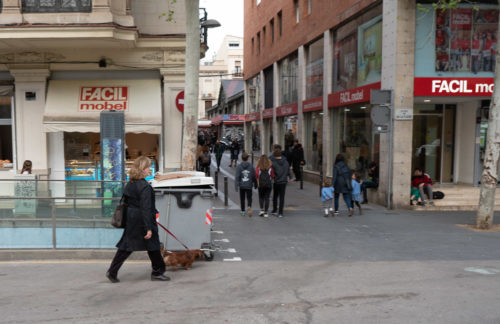
Gràcia is a low-key district of narrow streets and cosy squares dotted with organic grocers, hip co-working spaces and artist studios. Gràcia is both the smallest district by area, at 4.2 km2, and the second most densely populated neighbourhood in Barcelona. One of the hippest, most cosmopolitan areas in the city, Gràcia’s intimate, close-packed streets and predominately low-rise, Mediterranean architecture give it a distinct feel. Its old, one-way streets are organized around a series of plazas, including Plaça de Vila de Gràcia, Plaça del Sol and Plaça de la Virreina. “Old-world charm” abounds.
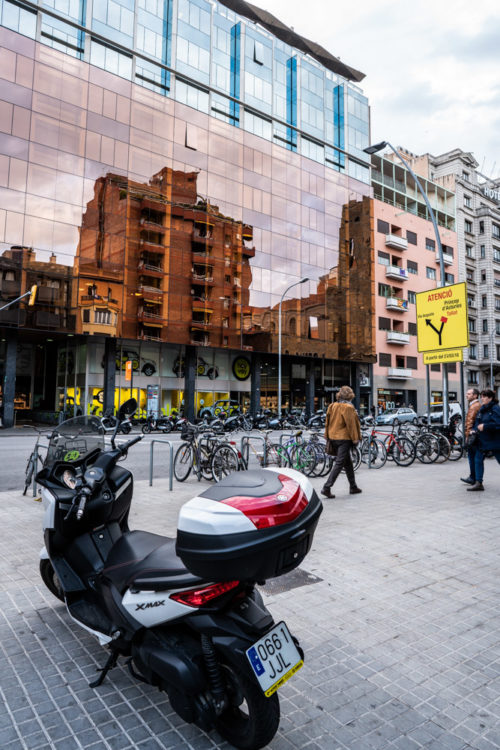
The Gràcia population is a mix of young professionals and artists and a growing elderly population, with a significant portion of older Catalans who came of age as Franco came to power. Catalan flags adorn many a Gràcia window or terrace, symbols of the neighbourhood’s fiercely pro-independence politics.
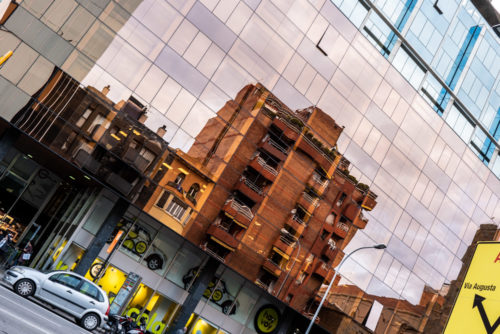
Compared to the other classic Barcelona neighbourhoods, Ciutat Vella and the rest of the old city, Gràcia is relatively void of major tourist attractions. In this bohemian enclave of Catalan urban life, there aren’t many international brands or fast-food chains. instead, small gourmet street food outposts are common; there are an array of ethnic cuisines, from Japanese to Greek. Ubiquitous as well are the bountiful small cafes serve classic Spanish tapas and Catalan specialities. Shopping abounds in funky mum & dad shops selling stylish trinkets and vintage clothing. Talented artisans and artists can be found in the squares and in small ground floor shops.
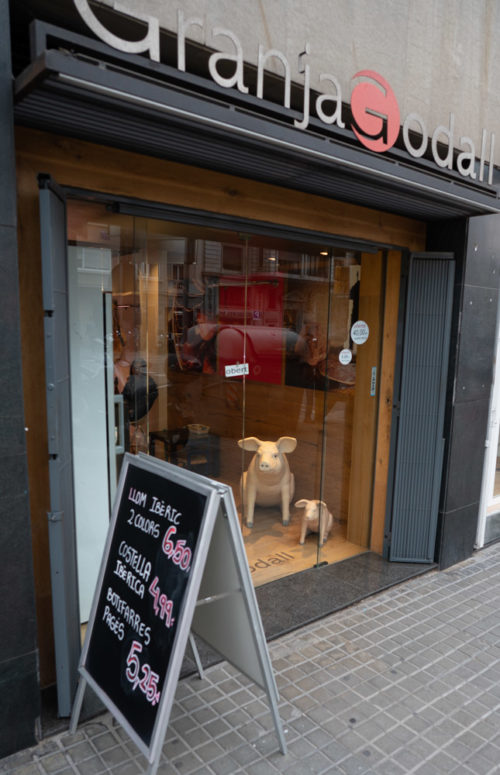
Nightlife in Gràcia is dominated by Spanish café culture, with an abundance of small bars and restaurants that host late-night revelry and long conversations. At the weekends, one might hear any number of local live music acts, from a single guitarist to a four-piece band. As for clubs, Otto Zutz is a famous hotspot at the Western end of Gràcia.
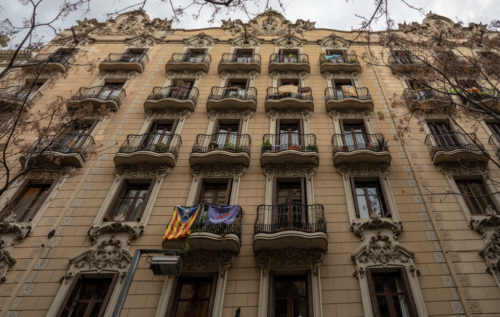
Halfway through our walk, we saw the Parròquia de Santa Teresa del Nen Jesús, which is a historical church in Barcelona located in the district of Gràcia and faces Via Augusta. You can check the images at my blog on creating panorama in Lightroom
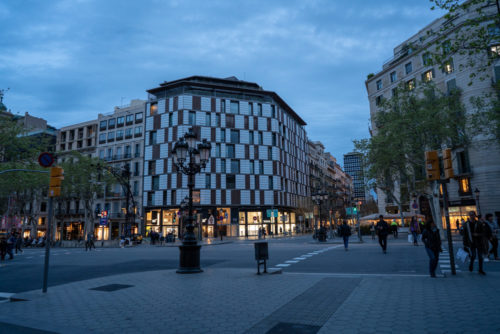
Sunset was at 8:20 PM local time. That is when we saw the beautiful Casa Milà. Casa Milà, popularly known as La Pedrera or “The stone quarry”, a reference to its unconventional rough-hewn appearance, is a modernist building in Barcelona. It was the last private residence designed by architect Antoni Gaudí and was built between 1906 and 1912. The building was commissioned in 1906 by Pere Milà and his wife Roser Segimon. At the time, it was controversial because of its undulating stone facade, twisting wrought iron balconies and designed by Josep Maria Jujol. Several structural innovations include a self-supporting stone façade, and a free-plan floor, underground garage and the spectacular on the roof terrace.
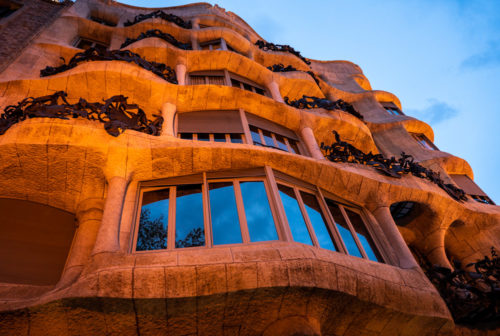
In 1984, it was declared a World Heritage Site by UNESCO. From 2013 is the headquarters of the Fundació Catalunya La Pedrera which manages the visit to the building, exhibitions and other cultural and educative activities at Casa Milà. As the building was closed, we had to enjoy the view from outside. Then it was time for dinner at a nearby cafe and returned back to the hostel for good night sleep.
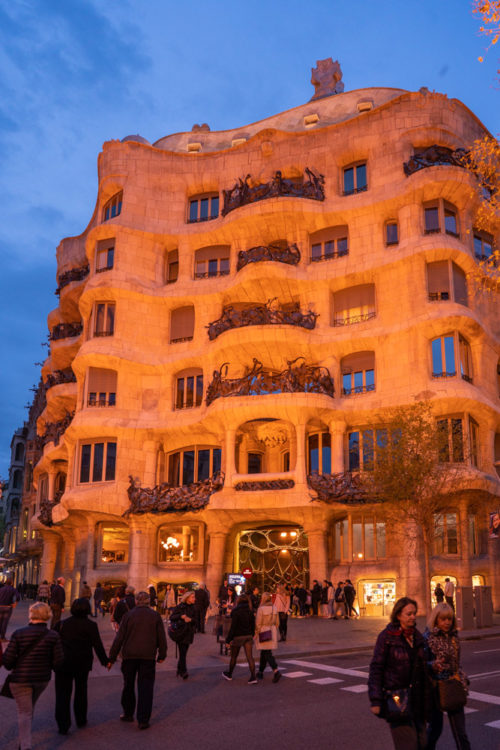
The photos used here were all taken handheld using Sony Alpha A7R III and ZEISS Batis 25mm f/2 Lens. Please check the next blog for part 2 of this journey.
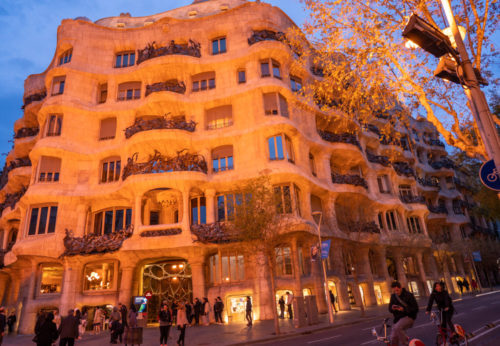

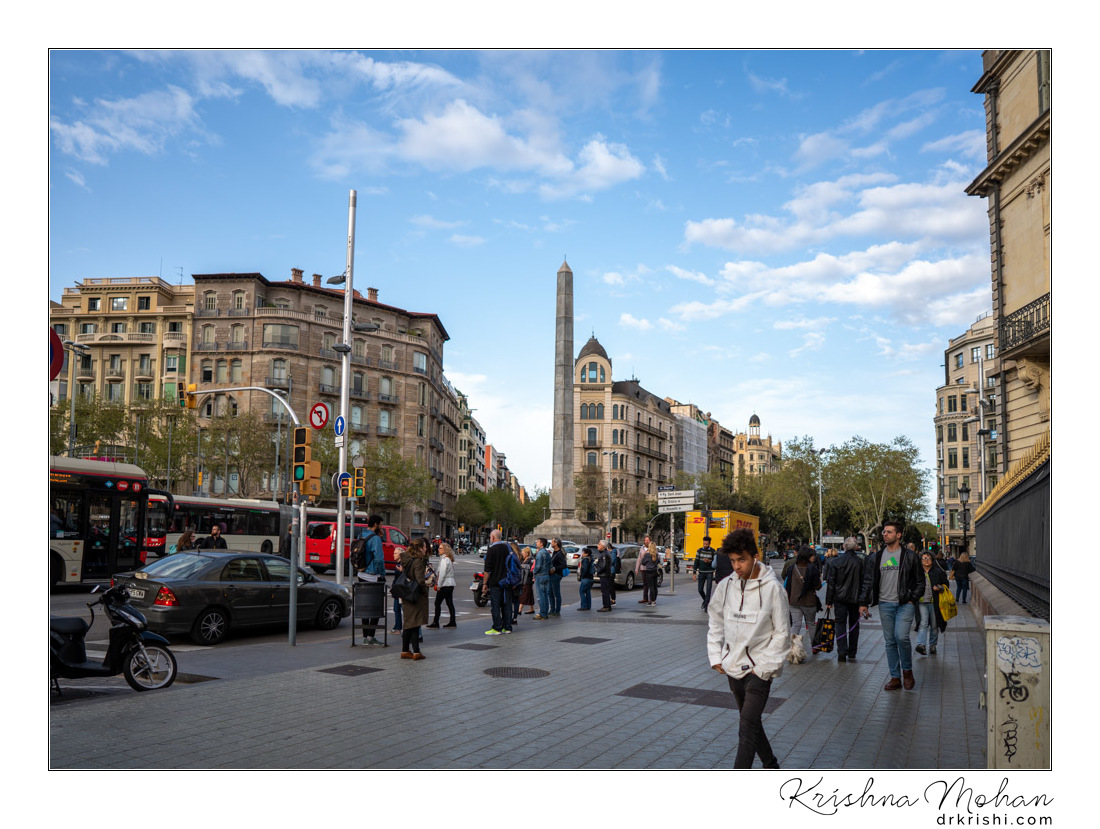
ಇಲ್ಲಿನ ‘ಗೌಡಿ’ ನಂಗೌಡ್ರಿಗೇನಾಗ್ಬೇಕು ನಮ್ಮ ಕೂಳೂರು ಮೇಲ್ಸೇತು ಪಕ್ಕದಲ್ಲಿ ಹಾಳುಬಿದ್ದ ಹೋಟೆಲ್ ‘ಕೂಲ್ ಟೌನ್” ಈಗ ಅನುದ್ದೇಶಿತವಾಗಿ ಕ್ಯಾಸ ಮಿಲಾದ ಲುಕ್ ಪಡೆದಿದೆ! ಹೇಗೆ ಯುನೆಸ್ಕೋ ಹೆರಿಟೇಜ್ ಸ್ಥಾನಮಾನ ಕೇಳೋದಾ